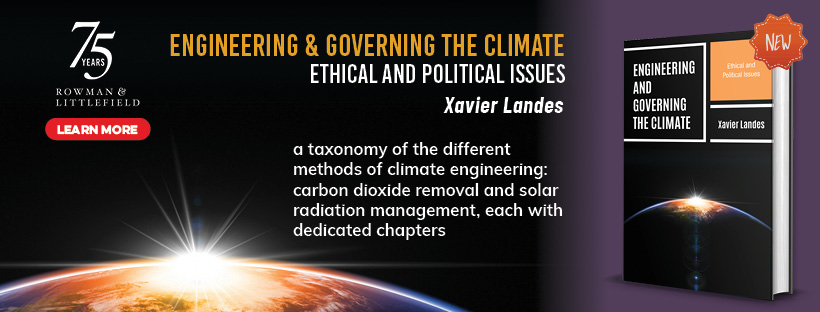New Book by Xavier Landes: Engineering and Governing the Climate - Ethical and Political Issues
SSE Riga's Associate Professor Xavier Landes introduces his book, "Engineering and Governing the Climate: Ethical and Political Issues," offering a timely exploration of climate engineering technologies.

Associate professor Xavier Landes has released his new book titled Engineering and Governing the Climate: Ethical and Political Issues, which offers one of the most up-to-date reviews of climate engineering (or geoengineering) technologies.
Those technologies aim to counter climate change and its effects by either removing carbon dioxide from the atmosphere or altering the solar radiation reaching the Earth.
In his monograph, Landes provides an overview of the main methods, based on the scientific literature. He also analyses the main promises, challenges and risks that they carry. A particular emphasis is put on the political and ethical dimensions.
Landes indicates that "this book is intended to offer an accessible introduction to techniques that could be used for modifying Earth's climate. Considering the emergency and the insufficient action of governments, climate engineering will be deployed in one form or another. For instance, most of the IPCC scenarios that respect the Paris Agreement target of a maximum warming of 2°C in comparison to pre-industrial times already include carbon dioxide removal. It is very common to hear governments or corporations saying that they will reach "net carbon neutrality" by the middle of the century. The reference to “net” means that CO2emissions will continue, but compensated by CO2 capture. However, such heavy reliance on technological solutions, which are still in development, is neither clearly voiced, nor properly addressed in public debates. More worryingly, some solar radiation management interventions, such as stratospheric aerosol injection, are increasingly considered by various actors. They present serious risks for the populations and ecosystems. Thus, the book's objective is to provide to as broad an audience as possible the necessary information and evaluative framework in order to navigate those debates."
